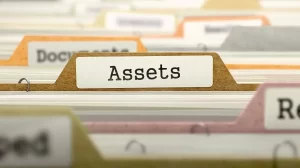

How to Check the Valuation of a Property
Determining the value of a property is crucial whether you’re buying, selling, or investing. Here’s a step-by-step guide to help you assess property valuation effectively.
1. Understand the Basics of Property Valuation
2. Research Comparable Properties
Find Comparable Sales: Look for properties similar to the one you’re interested in that have recently sold. Consider factors like location, size, number of bedrooms and bathrooms, and amenities.
Adjust for Differences: If the comparable properties differ in significant ways (like a pool or extra garage), adjust their prices to reflect these differences.
3. Utilize Online Valuation Tools
Many websites offer automated valuation models (AVMs) that can provide a quick estimate of a property’s value. While these can be helpful, remember that they may not account for unique property characteristics or local market nuances. Examples include Zillow, Redfin, or local real estate platforms.
4. Hire a Professional Appraiser
If you need an accurate valuation, hiring a certified appraiser is a wise choice. Appraisers consider numerous factors, including market conditions and property condition, providing a comprehensive report. This is especially useful for lenders during mortgage processes.
5. Conduct a Comparative Market Analysis (CMA)
Real estate agents often perform CMAs, which compare a property to similar properties currently on the market. A CMA will give you insight into how a property is priced relative to others and can help set a competitive price for sellers or evaluate a fair offer for buyers.
6. Evaluate the Income Approach
If the property is an investment, consider its income-generating potential. The income approach estimates property value based on its ability to generate rental income. Key elements include:
- Net Operating Income (NOI): Calculate the total income from the property minus operating expenses.
- Capitalization Rate (Cap Rate): Divide the NOI by the property’s value to assess potential returns.
7. Analyze Market Trends
Understanding local and national market trends is essential. Look into:
- Recent Sales Data: Trends in property sales prices can indicate market direction.
- Supply and Demand: Assess how many properties are on the market versus how many buyers are active.
- Economic Indicators: Economic health can impact property values, so stay updated on employment rates, interest rates, and inflation.
8. Consider Local Government Regulations
Zoning laws, property taxes, and development plans can impact property value. Investigate local regulations and any upcoming changes in your area that might affect property prices.
9. Account for Property Condition
The physical condition of the property significantly influences its value. Conduct a thorough inspection, looking for:
- Structural Issues: Cracks, leaks, or foundation problems.
- Updates and Renovations: Recent renovations can increase value, while outdated systems might lower it.
10. Use the Cost Approach
For newly constructed properties, the cost approach can be useful. This method estimates the value based on the cost to replace or reproduce the property, minus depreciation. It’s particularly relevant for unique or custom-built properties.
To visit: https://www.mca.gov.in
FAQs
1.What is property valuation?
Ans: Property valuation is the process of estimating how much a property is worth.
2.Why is property valuation important?
Ans: It helps buyers and sellers set fair prices, assists in mortgage approvals, and aids investors in making informed decisions.
3. What factors affect property value?
Ans: Location, size, condition, market trends, and property features (like a pool or garage) all influence value.
4. How can I check a property’s value?
Ans: You can research comparable sales, use online valuation tools, hire a professional appraiser, or conduct a market analysis.
5. What are comparable sales?
Ans: Comparable sales are similar properties that have recently sold, used to estimate the value of a property.
6. What is an appraiser?
Ans: An appraiser is a certified professional who assesses a property’s value based on various factors.
7. What is a CMA?
Ans: A Comparative Market Analysis (CMA) compares a property to similar ones on the market to help determine a competitive price.
8. What is the income approach?
Ans: The income approach values a property based on its potential rental income, useful for investment properties.
9. How do market trends affect property value?
Ans: Rising demand and limited supply can increase property values, while economic downturns can decrease them.
10. Why should I consider property condition?
Ans: The physical state of a property can significantly impact its value, with well-maintained properties generally worth more.
